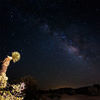Slide scanning
May 5, 2015 22:58:54 #
GTinSoCal wrote:
There is WAY more information in the raw than a converted jpeg.
I have found I always do a better job at dust and scratch removal than a scanner.
GT
I have found I always do a better job at dust and scratch removal than a scanner.
GT
Essentially, the slide itself is the RAW file. All the available image information is contained within. After using the the scanner's software to take care of global adjustments, you can then convert it to TIFF format to fix scratches, remove dust spots, perform cropping, apply effects, etc. in any standard image editor. Scanning to RAW output is unnecessary if you follow the proper workflow.
May 5, 2015 23:32:13 #
No, that is incorrect, the slide is the raw file and I'm not going to let a machine make decisions that are better left to a seeing thinking person.
Once you throw away information it is gone, you' CAN'T get it back.
Letting a blind machine make "corrections" and throw away information it deems unnecessary is no different than letting the camera throw away information for you.
Makes little sense to have been shooting velvia to have a machine throw away 75% of the information before I even see it!
:-/
Please understand, I'm telling YOU to do it, I just don't want to waste the information that I have.
GT
if you want to debate this further, please start a new thread.
It is impolite to hijack another's thread.
Once you throw away information it is gone, you' CAN'T get it back.
Letting a blind machine make "corrections" and throw away information it deems unnecessary is no different than letting the camera throw away information for you.
Makes little sense to have been shooting velvia to have a machine throw away 75% of the information before I even see it!
:-/
Please understand, I'm telling YOU to do it, I just don't want to waste the information that I have.
GT
if you want to debate this further, please start a new thread.
It is impolite to hijack another's thread.
rook2c4 wrote:
Essentially, the slide itself is the RAW file. All the available image information is contained within. After using the the scanner's software to take care of global adjustments, you can then convert it to TIFF format to fix scratches, remove dust spots, perform cropping, apply effects, etc. in any standard image editor. Scanning to RAW output is unnecessary if you follow the proper workflow.
May 6, 2015 00:45:15 #
GTinSoCal wrote:
No, that is incorrect, the slide is the raw file a... (show quote)
I don't know what scanner you use, but with mine, the scanner's software happens to be the RAW editor - it has all the adjustments of a typical RAW editor, and with preview. Once I complete the adjustments, I can then export as a JPEG or TIFF file. One is not wasting information, as the original slide still exists. And the slide has all possible image information there ever will be. Until you export from the software, you have 100% of all information (up to the selected resolution, of course). If for some reason later on one is not satisfied with the generated JPEG/TIFF file, one can simply rescan the slide and start over. Just like going back to the RAW file from a digital camera to make new adjustments for export.
May 6, 2015 06:27:23 #
May 6, 2015 06:27:55 #
DUKE103
Loc: Boston Area
I read this thread with great interest as I too have this chore in front of me. The question that I have not seen asked nor answered is how long, on an average, does it take to scan in one slide. The decision I must make is it worth the time as well as the cost to send them all out for a outside source to do. Where I am about to retire I think I have better use of my time
May 6, 2015 06:38:52 #
Outdoorsafe wrote:
I have a huge collection of 35mm slides that I would like to digitize or have someone digitize for me. I would appreciate any suggestions you may have. Should I buy a digitizer and if so which one do you recommend, or should I send my slides to a company that will do it for me and if so which one? Peter
I have an Epson V600 scanner that produces satisfactory results and does not break the bank. It is slow, but used with appropriate care and software settings, the resolution and sharpness measure up to that of the film.
May 6, 2015 07:35:14 #
BebuLamar wrote:
It's not very easy to set up a good rig for copying slide with a camera. However, once you get the setup and setting down pat it's much faster than a scanner and really you don't really have to PP each slide differently.
:thumbup:
May 6, 2015 07:49:43 #
Dale40203
Loc: Louisville, KY
Outdoorsafe wrote:
I have a huge collection of 35mm slides . . . Should I buy a digitizer . . . or should I send my slides to a company that will do it for me and if so which one?
Peter
Peter
I've been considering the same thing for years. I have an Epson V750 flatbed which is fine for proofing multiple slides or negatives at once, but the resolution is not there for anything useful (IMO) at least not for 35mm. A dedicated film scanner takes too long. The only other option is using a digital camera set up with a copy stage like a Bowens Illumitran. These are hard to find. Last year Pentax announced a film duplicator apparatus which sounded promising - except for the price. I've heard nothing about it since then.
http://www.imaging-resource.com/news/2014/04/21/pentax-film-duplicator-helps-you-scan-35mm-and-medium-format-film-quicker
Here's a detailed link on using a Nikon bellows:
http://www.trippingthroughthedark.com/scanning/scanning-35mm-black-and-white-negatives-with-the-d800e/
May 6, 2015 08:06:52 #
rook2c4 wrote:
I too recommend Epson. Recently I purchased a refurbished Epson V550 for just over $100 to scan my slides and negatives, and I've been very pleased with it.
I just did the same with the same results. Compare the roughly 100.00 price tag of an Epson refurb with the cost of doing it commercially. Makes great sense if you have the time to spend doing it yourself.
May 6, 2015 09:05:02 #
I just completed the same project - over 1000 slides of family since early 1950s. Epson Perfection V5 scanners are fabulous. You will be please with the quality - just takes time to go through many slides. Have fun!
May 6, 2015 09:36:16 #
Once again, thank you to all of you who took the time to present the different viewpoints. It seems that I am not the only one faced with the task of digitizing slides.
May 6, 2015 09:45:44 #
BebuLamar wrote:
I made a setup to photograph my slides and put some information on UHH on it. See http://www.uglyhedgehog.com/t-71086-1.html for quite a bit on this.You can take pictures of the slides using a digital camera.
See also http://www.scantips.com/es-1.html for an alternative using a slide copier attachment for a Nikon.
Photographing slides, once you have set it up, is very fast taking only a few seconds to change the slide and press the shutter, although obviously PP time must be added. Scanning in my limited experience takes up to a minute per slide plus PP.
May 6, 2015 10:05:10 #
Depends how much time you have. I have an Optex scanner which didn't cost too much and which does a very good job . But it can be tedious.I didn't do them all but merely made a representative selection.
Expect some unpleasant surprises if you have not looked at the slides for some tine. The Kodachromes will be as good as the day they came back from the lab. But Ektachrome, Fuji Color and Anscochrome and some of the off brand labels likely will have faded or shifted colour. You can rescue some in Photoshop or, as I did in some cases, convert them to B&W.
Expect some unpleasant surprises if you have not looked at the slides for some tine. The Kodachromes will be as good as the day they came back from the lab. But Ektachrome, Fuji Color and Anscochrome and some of the off brand labels likely will have faded or shifted colour. You can rescue some in Photoshop or, as I did in some cases, convert them to B&W.
May 6, 2015 11:01:45 #
Outdoorsafe wrote:
Once again, thank you to all of you who took the time to present the different viewpoints. It seems that I am not the only one faced with the task of digitizing slides.
I would like to add;
If you get a bed scanner (I have the Epson V500) you can also scan, restore and preserve old photographs (and children's art work) as well as slides. It does take (a lot) of time to do a high resolution scan and to touch out all the scratch and dust spots, But that's half the fun of photography. Just think how long it use to take to develop film and then make a print, but that to was half the fun of photography.
So the question is "how much fun can you handle":)
May 6, 2015 11:48:33 #
wmontgomery
Loc: Louisiana
Having scanned 35mm film and slides in the past (too much work), I recently sent a group of 50 year old slides that my Dad had taken to DigMyPics.com. Since they have 3 different prices per slide, I called to determine the price I needed. Was immediately able to talk to a knowledgable person (what a plus these days). I chose this site for equipment quality, ability to see the raw scan on their website as soon as it is scanned, and once they are enhanced, cropped or rotated, I can delete the ones I do not wish to pay for. My batch is still at the initial viewing stage, I have not received the finished proof sheets and DVD's.
When I get these back I have a box of old 8mm film rolls to send if I am pleased with the slide results.
When I get these back I have a box of old 8mm film rolls to send if I am pleased with the slide results.
If you want to reply, then register here. Registration is free and your account is created instantly, so you can post right away.








